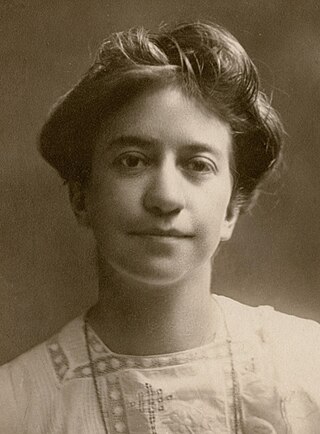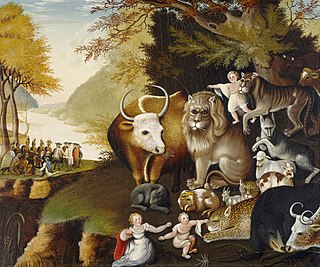A Pacifist organization promotes the pacifist principle of renouncing war and violence for political ends. They are distinguished from organizations concerned only with removing nuclear weapons from war, though those organization may call for suspension of hostilities as well. Other organizations include those that deal with other concerns, but have a strong pacifist element.
Pacifist organizations:
"Nuclear pacifist" organizations:
Organizations that cite pacifism as an aim:

Pacifism is the opposition or resistance to war, militarism or violence. The word pacifism was coined by the French peace campaigner Émile Arnaud and adopted by other peace activists at the tenth Universal Peace Congress in Glasgow in 1901. A related term is ahimsa, which is a core philosophy in Indian religions such as Hinduism, Buddhism, and Jainism. While modern connotations are recent, having been explicated since the 19th century, ancient references abound.
Anarcho-pacifism, also referred to as anarchist pacifism and pacifist anarchism, is an anarchist school of thought that advocates for the use of peaceful, non-violent forms of resistance in the struggle for social change. Anarcho-pacifism rejects the principle of violence which is seen as a form of power and therefore as contradictory to key anarchist ideals such as the rejection of hierarchy and dominance. Many anarcho-pacifists are also Christian anarchists, who reject war and the use of violence.
The War Resisters League (WRL) is the oldest secular pacifist organization in the United States. The organization is celebrating its centennial from the founding date of October 19 into 2024.

Abraham Johannes Muste, usually cited as A. J. Muste, was a Dutch-born American clergyman and political activist. He is best remembered for his work in the labor movement, pacifist movement, antiwar movement, and civil rights movement.
The Fellowship of Reconciliation is the name used by a number of religious nonviolent organizations, particularly in English-speaking countries. They are linked by affiliation to the International Fellowship of Reconciliation (IFOR).

David Ernest McReynolds was an American politician and social activist who was a prominent democratic socialist and pacifist activist. He described himself as "a peace movement bureaucrat" during his 40-year career with the War Resisters League. He was a resident of New York City. McReynolds was twice a candidate for President of the United States, running atop the ticket of the Socialist Party USA in 1980 and 2000. He was America's first openly gay presidential candidate.
Peace churches are Christian churches, groups or communities advocating Christian pacifism or Biblical nonresistance. The term historic peace churches refers specifically only to three church groups among pacifist churches:
The International Fellowship of Reconciliation (IFOR) is a non-governmental organization founded in 1914 in response to the horrors of war in Europe. Today IFOR counts 71 branches, groups and affiliates in 48 countries on all continents. IFOR members promote nonviolence, human rights and reconciliation through public education efforts, training programs and campaigns. The IFOR International Secretariat in Utrecht, Netherlands facilitates communication among IFOR members, links branches to capacity building resources, provides training in gender-sensitive nonviolence through the Women Peacemakers Program, and helps coordinate international campaigns, delegations and urgent actions. IFOR has ECOSOC status at the United Nations.
Peacemakers was an American pacifist organization founded following a conference on "More Disciplined and Revolutionary Pacifist Activity" in Chicago in July 1948. Ernest and Marion Bromley and Juanita and Wally Nelson largely organized the group. The name “Peacemakers” was taken from a section of the Bible, the Beatitudes or Sermon on the Mount: "Blessed are the peacemakers, for they will be called children of God." The group’s organizational structure adopted a multidivisional organizational structure with a loose hierarchy, prioritizing local committees including but not limited to the Tax Refusal and Military Draft Refusal Committee. The Peacemakers were social anarchists whose organizational beliefs are largely attributed to Marxist philosophy. Peacemakers aimed to advocate nonviolent resistance in the service of peace.
Ralph DiGia was a World War II conscientious objector, lifelong pacifist and social justice activist, and staffer for 52 years at the War Resisters League.

A peace movement is a social movement which seeks to achieve ideals such as the ending of a particular war or minimizing inter-human violence in a particular place or situation. They are often linked to the goal of achieving world peace. Some of the methods used to achieve these goals include advocacy of pacifism, nonviolent resistance, diplomacy, boycotts, peace camps, ethical consumerism, supporting anti-war political candidates, supporting legislation to remove profits from government contracts to the military–industrial complex, banning guns, creating tools for open government and transparency, direct democracy, supporting whistleblowers who expose war crimes or conspiracies to create wars, demonstrations, and political lobbying. The political cooperative is an example of an organization which seeks to merge all peace-movement and green organizations; they may have diverse goals, but have the common ideal of peace and humane sustainability. A concern of some peace activists is the challenge of attaining peace when those against peace often use violence as their means of communication and empowerment.
The Anglican Pacifist Fellowship (APF) is a body of people within the Anglican Communion who reject war as a means of solving international disputes, and believe that peace and justice should be sought through nonviolent means.
The International Confederation for Disarmament and Peace was an organisation formed by peace groups from western and non-aligned nations in 1963.

Jessie Wallace Hughan was an American educator, a socialist activist, and a radical pacifist. During her college days she was one of four co-founders of Alpha Omicron Pi, a national fraternity for university women. She also was a founder and the first Secretary of the War Resisters League, established in 1923. For over two decades, she was a perennial candidate for political office on the ticket of the Socialist Party of America in her home state of New York.
Operation Gandhi was a pacifist group in Britain that carried out the country’s first nonviolent direct action protests in 1952.

Devere Allen (1891–1955) was an American socialist and pacifist political activist and journalist. Allen is best remembered as the main editor of The World Tomorrow following the departure of Norman Thomas from the magazine in 1922. Allen was the author of more than 20 books and pamphlets and was active in the leadership of a number of political organizations, including the League for Independent Political Action (1928–1932) and the Socialist Party of America.

Pacifism has manifested in the United States in a variety of forms, and in myriad contexts. In general, it exists in contrast to an acceptance of the necessity of war for national defense.
United States Fellowship of Reconciliation was founded in 1915 by sixty-eight pacifists, including A. J. Muste, Jane Addams and Bishop Paul Jones, and claims to be the "largest, oldest interfaith peace and justice organization in the United States." Norman Thomas, at first skeptical of its program, joined in 1916 and would become the group's president. Its programs and projects involve domestic as well as international issues, and generally emphasize nonviolent alternatives to conflict and the rights of conscience. Unlike the U.K. movements, it is an interfaith body, though its historic roots are in Christianity. Both the FOR in the United States and similarly named organizations in other countries are affiliated with the International Fellowship of Reconciliation.